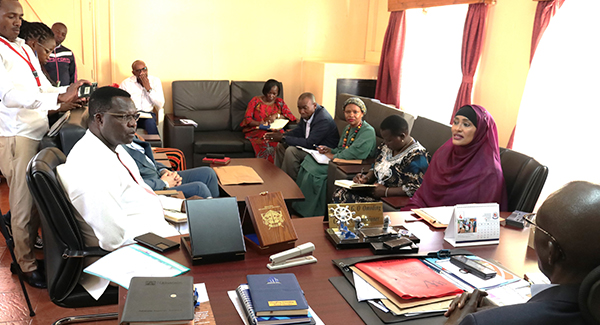Justice at the Doorstep: NGEC’s Legal Aid Clinics Restore Hope and Resolve Festering Disputes in Isiolo
In the sun-scorched plains of Isiolo County, a quiet but transformative revolution in access to justice is underway. The National Gender and Equality Commission (NGEC), wielding its constitutional and statutory mandate, recently brought its mobile legal aid clinic to the heart of this deeply patriarchal region—offering not just legal remedies, but hope, knowledge, and dignity to communities long accustomed to silence and suffering.
This outreach was not just a routine event. It was a practical expression of the Commission’s powers under Article 252 of the Constitution and Section 26 of the NGEC Act, which enable the institution to summon individuals, compel production of documents, conduct institutional audits on equality compliance, and most crucially—adjudicate, mediate and resolve matters of discrimination and inequality.
At the NGEC’s legal aid clinic in Isiolo, justice was not a distant ideal. It was tangible, accessible, and free. Dozens of residents— women, men, youth and the elderly—stepped forward, many for the first time, to seek resolution to deeply personal and often painful disputes. From cases of sexual and gender-based violence (SGBV), to family wrangles over matrimonial property, contested wills, and inheritance claims, the clinic offered immediate support.
A team of NGEC lawyers and certified professional mediators engaged the public with empathy and precision. Some disputes were resolved on the spot through alternative dispute resolution (ADR), a method known for being less adversarial, more costeffective, and faster than traditional litigation. Others, beyond the Commission’s jurisdiction, were referred to appropriate agencies such as the Commission on Administrative Justice (CAJ), illustrating a seamless referral pathway to justice.
The clinic also drew strong support from local religious leadership. The Garbatulla Senior Resident Kadhi offered a compelling endorsement of NGEC’s work, describing the forums as critical platforms for both legal and religious awareness.
“Many citizens do not fully understand their rights, or how Islamic law intersects with constitutional provisions on domestic violence and family matters,” he noted. “By convening such forums, NGEC is narrowing the knowledge gap and empowering individuals to seek justice.”
The Kadhi emphasized that when gender-based violence cases are brought before his court, they are handled with seriousness and sensitivity—ensuring that perpetrators are held accountable in line with both Shariah and national law. Survivors, he affirmed, are assured of redress and support.
He also lauded the Commission for reinforcing public trust in the justice system. “Accessible and transparent legal processes build confidence in our institutions. This is a cornerstone for upholding the rule of law and improving judicial outcomes,” he said.
The Commission’s intervention in Isiolo underscored how alternative dispute resolution—grounded in constitutional values, legal expertise, and cultural sensitivity—can restore goodwill and promote community cohesion.
Importantly, these forums are not simply about solving disputes. They are about affirming rights, restoring dignity, and reshaping the narrative around justice for women, men, and marginalized groups.
They empower individuals with knowledge, encourage communities to dialogue, and invite institutions— both civil and religious—to collaborate in pursuit of fairness and equity.
The Commission’s outreach in Isiolo is part of a broader strategy to mainstream equality and nondiscrimination across Kenya’s counties. By providing direct, grassroots-level legal assistance, NGEC is turning policy into practice and fulfilling its constitutional obligation to protect and promote the rights of all Kenyans.
And in Isiolo, the results are already visible: communities that once suffered in silence are now speaking out; disputes that lingered for years are being resolved; and public trust in the justice system is rising.
Through its legal aid clinics, the National Gender and Equality Commission is not only bringing justice to the doorstep—it is restoring hope, healing communities, and holding the nation true to its constitutional promise.
NGEC Lawyer Nancy Mwangi captures a Kinna resident’s story during a legal aid session.


Comments